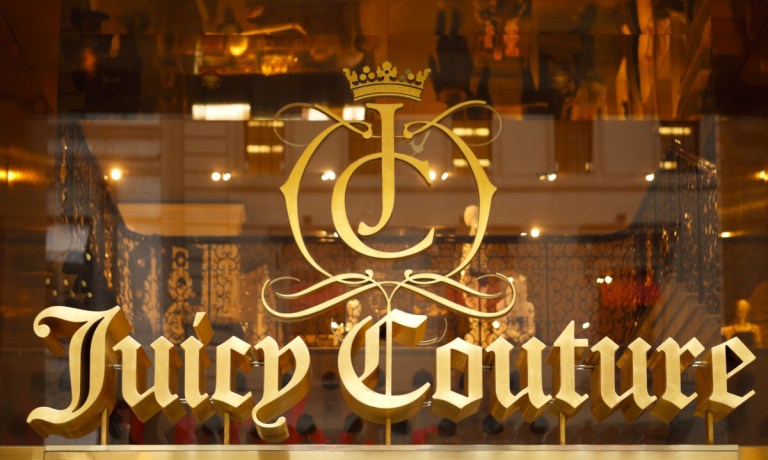Why Juicy Couture’s New Menswear Line Could Be a Hit With Gen Z

There are numerous ways to evoke nostalgia.
In April, Gap opted to collaborate with Mattel, releasing a fashion line inspired by Barbie, a nod to childhood and to the recently released Barbie movie.
True Religion and Juicy Couture’s partnership, on the other hand, is capitalizing on the resurgence of Y2K trends. This era, marked by logos, vibrant colors, low-rise waistlines and denim, is gaining consumer interest, allowing retailers to tap into that nostalgic feeling and capitalize on it.
True Religion is aiming to do so by expanding not only its men’s and women’s line, but also the products it has for pets.
Read more: True Religion Takes Fashion to the Catwalk — Literally
Juicy Couture has its own place in the nostalgic hall of fame.
Once coveted by women, the brand is now looking to break into the men’s market with a new line called Dirty London.
According to a report from Fashion Network, the new line, which is inspired by U.K. capital, embraces the city’s rich cultural tapestry to produce the streetwear.
Per the report, the collection takes cues from Juicy Couture’s designs to produce a reimagining of the tracksuit, elevated to meet the needs of the menswear consumer.
Why This Approach Could Align With Gen Z
While the roots of Dirty London can be traced back to Juicy Couture, this new line doesn’t replicate the past; instead, it reimagines classic Juicy designs for male consumers. The result is a collection that pays homage to the brand’s influence while presenting a contemporary take on the tracksuit.
For Generation Z, a demographic known for its progressive views on gender and identity, Dirty London’s embrace of the feminine aesthetic from Juicy Couture could be a compelling factor.
Gen Z is characterized by an openness to fluid expressions of gender, breaking away from traditional norms. By incorporating elements from the original brand that was once considered an iconic women’s brand, Dirty London not only acknowledges the brand’s heritage but also aligns with the values of the younger generation.
The reimagined tracksuit is a symbol of this evolution, which aims to meet the needs and preferences of the modern menswear market. With an understanding that fashion is no longer confined by gender boundaries, Dirty London has created an opportunity to offer a versatile option for individuals who appreciate the blending of traditionally feminine elements with contemporary menswear.
In fact, research from Statista found that the main driver for American Gen Z consumers making fashion purchases outside their identified gender is comfort. Sixty-four percent of respondents identified this as their primary reason, while 17% and 12% cited making a social statement and expressing gender, respectively.
The Value of Nostalgia
According to PYMNTS, “Gen Zs have a yearning to immerse themselves in the pop culture and trends of bygone decades, even if they didn’t directly experience them. While all age groups experience nostalgia to some extent, Gen Z is considered the most nostalgic generation, with 15% indicating a preference for reminiscing about the past rather than contemplating the future. Millennials are a close second at 14%, and this preference diminishes as one ages.
“Moreover, research indicates that nostalgia in media is predominantly propelled by Gen Z and millennials, with Gen Z spearheading the trend at 50%, followed by 47% of millennials.”
Despite this, retailers who embrace nostalgia may not find as much success as they hope.
A recent PYMNTS report indicates potential volatility in spending in the months ahead. Even though the Federal Reserve expects inflation to slow down, consumers have been taking on more debt, which may dissuade them from spending.
Additionally, concerns remain about meeting monthly debt obligations. The Fed reported a 0.6% increase to 12.4% in the “average perceived probability of missing a minimum debt payment” for the next three months, exceeding the 11.5% trailing 12-month average. This data suggests that consumers may be taking on more debt than they can handle.
PYMNTS also found consumers used savings to offset inflation and turned to credit for holiday spending. Late last year, the Fed found only about two-thirds of consumers felt confident handling an unexpected $2,000 expense. Despite an expectation for inflation to decrease, other factors will determine consumer spending resilience in the coming months.
That said, Juicy Couture’s move to diversify and potentially win over a larger market may have some advantage points down the road, once consumers feel confident enough to spend once again.
For all PYMNTS retail coverage, subscribe to the daily Retail Newsletter.